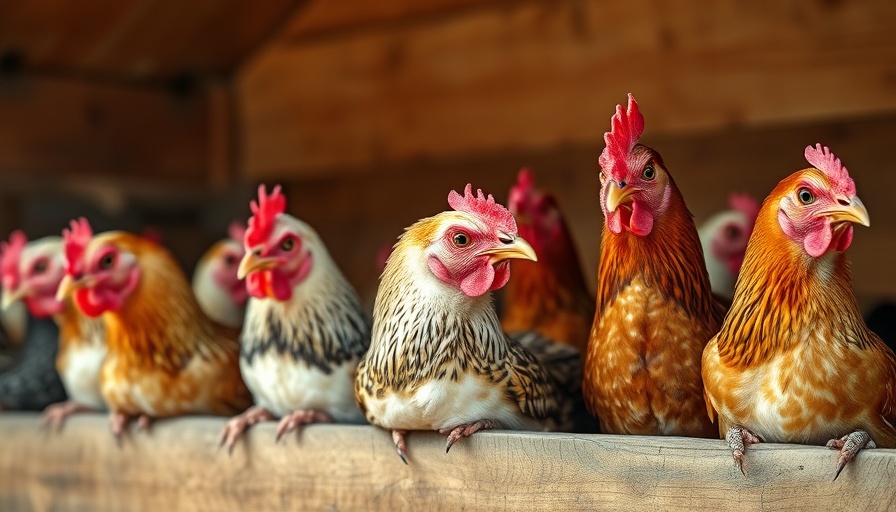
New Jersey's Ongoing Battle with Bird Flu
As New Jersey grapples with the spread of avian influenza, live poultry markets affected by recent outbreaks have been swiftly disinfected and reopened. This decisive action reflects the state's commitment to maintaining public health and safety while allowing local vendors to resume operations—an essential aspect of many communities from Camden to the Jersey Shore.
Health Measures Implemented by New Jersey
In early March 2025, the New Jersey Department of Agriculture confirmed instances of highly pathogenic avian influenza (HPAI) in three live bird markets. This raised alarms within the state, prompting officials to increase monitoring and inspection efforts. “Our state veterinarian services are on site and consistently assessing the situation to prevent any further spread,” stated Secretary Ed Wengryn. The immediate closure of the affected markets for thorough cleaning underlines the seriousness of these outbreaks. However, they successfully reopened just days later following strict disinfection protocols.
Understanding Avian Influenza Risks
Despite the alarm associated with these recent cases, New Jersey's health officials have reassured the public that the risk to human health remains low. State epidemiologist Dr. Tina Tan emphasized that there have been no confirmed cases of avian influenza in humans within the state to date, making the importance of public awareness and biosecurity practices even more paramount. If you've had close contact with infected poultry or are managing a flock of chickens, vigilance is crucial.
Signs of Avian Influenza in Poultry
Poultry owners and market managers are urged to watch for symptoms of the disease, which can include sudden death, respiratory distress, lethargy, and declining egg production. Recognizing these signs early can be vital in controlling outbreaks and protecting both animal and human health. Failure to act swiftly could result in wider contamination, emphasizing the necessity for comprehensive biosecurity measures in poultry management.
Community Involvement and Education
The state's initiative not only involves inspections but also calls for community assistance in reporting any unusual signs in poultry populations. This collective responsibility among those interacting with birds can make a significant difference in curtailing the spread of this virus. The New Jersey Department of Agriculture is also working closely with health departments to monitor and guide affected individuals.
In conclusion, while the reopening of affected poultry markets is a positive sign, vigilance, education, and community involvement are critical as New Jersey continues to face avian influenza. By taking proactive steps, residents can help ensure the health of both poultry and the public, fostering a more informed and safer environment for all.
 Add Row
Add Row  Add
Add 




 Add Row
Add Row  Add
Add 

Write A Comment